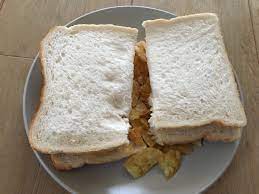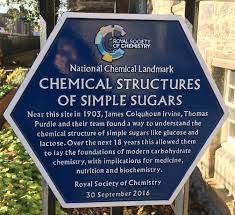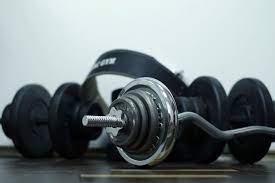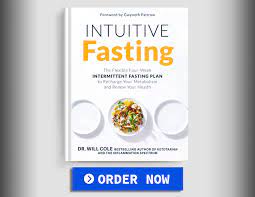Smart And Simple Tips To Boosting Your Hgh Production
Hormone Replacement Therapy
Maintaining Natural Production of HGH when on an HGH therapy program or increasing your own natural production of HGH without HGH therapy.
More Tips on Increasing Growth Hormone Production
Although Human Growth Hormone Replacement Therapy is an excellent choice for many men and women suffering from HGH Deficiency, we understand that many people would prefer to forgo medical therapy if possible while also experiencing the benefits of amplified Growth Hormone Levels.
In a previous article, we discussed an in-depth, intense guide on maximizing innate Human Growth Hormone Production. This article aims to provide four simple tips on how anyone can increase their Endogenous Production of HGH by making particular changes in their everyday life.
IGF-1: The Under-appreciated Hormone
Human Growth Hormone is a natural cellular metabolism booster released by the pituitary, but a lesser known hormone known as Insulin-Like Growth Factor One does all the heavy lifting.
HGH cycles through the body to the liver, which converts Growth Hormone into IGF-1, where it cycles through the body, impacting immense changes in both physical and mental health.
both physical and mental health.
Low Human Growth Hormone Levels Promote Symptoms of Early Aging
HGH Deficiency begins to start causing physical problems for us as we age 25. Although Age-Related Hormone Decline does not leave patients of this age clinically deficient in Human Growth Hormone, the body begins to experience adverse effects from reduced HGH Production as levels begin to crest from their optimum level we experience in our late teens and early twenties.
Although Growth Hormone Deficiency impacts the body in numerous and varying ways, the most commonly discussed and studied ways that HGH Decline affects the human body are:
Low HGH Levels decrease physical capacity and endurance
Pituitary GH Deficiency slows down the body's natural healing processes, both regarding the immune system and physical damage to bodily tissues.
Growth Hormone Deficiency directly impacts skin health, leading to increased wrinkles and drier, rougher skin.
Decreased metabolism due to diminished HGH and IGF-1 causes the body to store higher fat levels, especially around the hips, thighs, waist, and stomach.
Low Human Growth Hormone makes it harder to get a good night's rest, which impacts all aspects of health.
HGH Deficiency, over time, has an intense impact on bone health, increasing the risk of osteoporosis and other bone disorders
Low HGH Makes You Feel Older
There is widespread clinical evidence that individuals with higher levels of Natural Human Growth Hormone in relationship to peers in their age group are more likely to be healthier in nearly every way.
They are also the men and women who tend to live the healthiest and most active lifestyles. Are you worried about declining HGH levels hurting your ability to enjoy life?
How Can I Boost My HGH Levels?
There are a variety of simple strategies that you can engage in that can have a tremendous impact on your endocrine health. To maximize the effectiveness of these methods as HGH Enhancers, you should live by these suggestions as regularly as possible. These options can significantly increase your health and vitality even if you engage in these health choices part-time.
Below are four of the most influential and straightforward tips on how to bolster your own natural production of Human Growth Hormone:
HGH Boosting Tip One: Limit Consumption of High-Glycemic Foods
One of the best ways to increase your innate HGH Levels and live healthier is to limit your Glycemic Intake. Low-Carbohydrate diets aren't the best choice for everyone, but choosing proteins and fats over carbohydrates can help you fill up faster without needing to stuff your face with food to feel  complete.
complete.
Paleolithic Diet for Increased HGH
One of the most popular approaches to the Low-Carb Diet in recent years is a strategy known as the Paleolithic Diet. This is one of the strictest forms of a Low-Glycemic Diet, and we do not necessarily fully endorse it for your individual case, but depending on how well you and your body take to it, it may be a fantastic choice.
The Paleolithic Diet avoids many different foods, including all forms of highly processed food and drink, alcohol, dairy, grains, and the majority of forms of sugar.
Primal Diet: Simplified Version of Paleolithic Diet
Another less strict form of the Paleolithic diet that you may find incredibly useful for increasing your health and hormone levels is known as the Primal Diet. This is a modified form of the Paleolithic Diet, which affords you more options to provide more variety in your diet while also nudging you toward the healthiest forms of potential indulgence.
The Primal Diet allows the consumption of a number of foods not allowed in the Paleolithic Diet, such as coffee, dark chocolate, modest wine consumption, and organic milk products.
Space to Cheat: The Slow-Carb Diet
Going down the list of strictest to least strict, another form of Low-Carb Diet increases choice even further. This diet is known as the Slow-Carb Diet. This diet allows the same potential options as the Primal Diet but also for consuming beans and legumes. Another unique option that makes the Slow-Carb Diet much easier to adopt fully is that it allows for one day each week where the rules don't apply.
Of course, this off-day isn't intended for you to break all the rules of dieting and eat everything you want; it's just a day for you to conspicuously enjoy all the foods you are not allowed to eat during the week.
...Or Just Be Smart About Your Carbohydrate Consumption!
Of course, these strategies aren't the only ways to eat healthier and bolster your HGH levels, but they may work for you. If you live a life in which you are engaged in intense physical activity regularly or you frequently engage in endurance training, Low-Carb Diets are not the choice for you.
For people like you, Carbohydrates offer a source of immediate energy that increases performance and prevents you from succumbing to fatigue.
Although there are a number of Low-Carbohydrate Diet plans, and they vary significantly, a number of similarities are featured in nearly every Low-Carb Meal Plan: Processed Carbohydrates and Refined Sugars are bad for you and should be avoided.
Why Are Processed Sugars and Carbs Bad?
The most crucial reason why Paleolithic-Style Diets significantly increase Biological HGH Levels is that they limit the consumption of both Simple Sugars and Over-Processed Carbs. Both foods have an intense effect on insulin levels in the human body.
 Insulin and Human Growth Hormone release are negatively correlated with one another. When Insulin Levels spike in the presence of high blood sugar, this directly correlates with a diminished level of Human Growth Hormone production.
Insulin and Human Growth Hormone release are negatively correlated with one another. When Insulin Levels spike in the presence of high blood sugar, this directly correlates with a diminished level of Human Growth Hormone production.
In addition, Carbohydrates such as grains have been shown to increase cortisol release by the adrenal glands, which negatively affects both the release of Testosterone and HGH.
The diets listed above offer their own potential health benefits. Depending on your individual conviction and constitution level, you may find yourself eager to try one of the above diets. The critical cardinal rules of diet which will help you maintain healthier Human Growth Hormone Levels are as follows:
Vastly Limit Processed Grains from Your Diet
White bread is an absolute no-no, as is white rice. Think of it this way: eating highly processed grains takes away from the work your stomach and digestive system are accustomed to doing to break the nutrition from the food you eat. The easier you make it on your stomach, the harder you make it for your body in the long run.
Limit Your Consumption of Simple Sugars As Well
The most common forms of simple sugar are honey, maple syrup, brown sugar, white sugar, and corn syrup. The same concept applies to refined sugars as processed grains.
These various sugars have been mechanically or biologically simplified to a point where your body does not have to work for the calories, and the nutrition has primarily been stripped in the process of refinement, leading to empty, pure calories which do nothing to encourage your improved health.
Eat High-Glycemic, Nutrient-Rich Foods Intelligently
Some foods have a high-glycemic index, although they still offer significant health benefits even though they contain high levels of simple sugar and carbohydrates. Eat these foods in small portions and limit your intake to make room for foods that offer more nutritional punch per calorie.
These foods and drinks include beer, skim milk, orange juice, and dried fruit. In many cases, these high-glycemic, high-nutrition foods are processed forms of other foods which contain even more nutrients.
Eat an orange, rather than drinking orange juice, for example. An orange contains more dietary fiber, filling you up more quickly and consuming less juice while getting more fulfillment from the product. Dried fruits are incredibly dense, and you can usually be better served by just eating the whole unprocessed fruit.
HGH Boosting Tip Two: Healthy Sleep Vital to Optimal HGH Production
Sleep is one of the final frontiers of modern biological science. Although we realize that this period of deep and intense rest is integral to human life and restores our bodies in countless ways, we are still decades away from fully understanding the overall mechanics of sleep.
However, we do have a keen understanding of a couple of crucial concepts regarding health and the endocrine system. Poor sleeping habits, including disruptive sleep and sleeping less than eight hours per night, can have a disastrous effect on our body's ability to produce healthy levels of both Human Growth Hormone and Testosterone.
Sleeping Better Isn't Always Easy
Although this is a simple concept: Sleep better and have improved hormone levels, it is more complex than it sounds. Sleep and Hormone Levels are a two-way street that can sometimes be difficult to set straight.
Sleeping poorly significantly reduces the body's ability to release Human Growth Hormone. The experience of Human Growth Hormone Deficiency also  makes it much harder to sleep eight hours straight.
makes it much harder to sleep eight hours straight.
One problem that many individuals talk about when they try to change their habits to experience more profound and more restful sleep is that they end up tossing and turning all night. In this case, even though they sleep eight hours, they aren't getting the full benefits of sleep as they relate to increased hormone production.
Sleep Deeper by Limiting Exposure to Artificial Light
One intuitive way to stimulate healthy sleep is to minimize exposure to unnatural light sources. This means opening your curtains and letting the sunlight in! Don't turn on the lights during the day unless you have to. There is scientific evidence that artificial sources of light decrease our body's natural production of melatonin, the hormone that most directly stimulates healthy sleeping habits.
Many people find that bright light sources prevent them from feeling sleepy, even if everything in their body tells them it's time for bed. Suppose you have trouble sleeping without rustling in the sheets for a whole night.
In that case, you may be unnaturally sensitive to artificial light, and reducing your exposure can help restore natural sleeping habits. At night, try only to use covered light sources and reduce the brightness and sharpness of light.
In addition to this, before you go to bed, survey everything around you. Eliminate all sources of light in your bedroom before going to bed. Even a blinking light on your television can reduce your ability to shut your mind off as entirely as you need to experience the most full and restful sleep, as well as produce the Human Growth Hormone that you need to optimize your health.
HGH Boosting Tip Three: Focus on Engaging in Exercise You Enjoy to Boost HGH
To be optimally healthy, it is imperative to exercise regularly, which is in no small part due to the influence that physical activity has on Human Growth Hormone Release. Although HGH is primarily released during sleep, exercise is a close second in terms of the pure volume of Human Growth Hormone secreted during the day.
Anaerobic and Aerobic Exercise Both Important for Good Health and Growth Hormone Stimulation
To improve your health and your hormone balance, it is vitally important to engage in exercise every week, which stimulates both aerobic and anaerobic activity. Running and weight lifting are the two least complex ways to engage in these types of exercise. That doesn't mean you have to lift weights or go for a hard run every day to be healthy.
Although many people love these forms of physical activity, you shouldn't perform a specific type of exercise just because someone tells you to, even if you don't enjoy it. Enjoyment and self-satisfaction are two of the strongest motivators for a successful workout plan. If you aren't happy with what you're doing, maintaining a workout regimen will be a terrible struggle.
doing, maintaining a workout regimen will be a terrible struggle.
Alternate Cardiovascular Workout Plans
If running sounds boring, try going to the gym and playing basketball. Sports like basketball and soccer are two types of activity that intensely stimulate cardiovascular processes, and they keep your mind active and busy simultaneously.
Running has a certain level of monotony that certain people can enjoy and others will find unsatisfying, but sports inject novelty into an otherwise vanilla workout routine.
Also, if you aren't a big fan of running but love riding bikes, cycling is a beautiful way to engage in cardiovascular exercise that fits your terms. If you enjoy running but get a bit bored sometimes, exploring and trying out new trails is a great idea.
Alternate Anaerobic Workout Plans
Regarding anaerobic exercise, we understand that the weight room doesn't appeal to everyone. Still, weight training is the absolute best form of physical activity which spurs the production of Human Growth Hormone. Luckily, there are a number of activities you can do that can replace just lifting weights at the gym.
If you are a fan of running, we encourage you to include resistance training in your running or jogging routine. By carrying or wrapping yourself with certain types of weights, you can create incredible levels of force resistance which encourage your muscles to activate anaerobically.
Also, we recommend swimming for the best all-around mixture of cardiovascular and anabolic exercise. Swimming stimulates the cardiovascular system while also giving the body an intense anaerobic workout at the same time. Water provides an incredible source of resistance which your arms and legs have to fight against to move.
This is why swimmers have the most effectively toned bodies of any type of athlete. Swimming is one of the few types of exercise that provide a stimulating workout from head to toe. By alternating your pace, you can stimulate both increases in cardiovascular production and muscle mass and tone.
Quick and Vigorous Activity Spikes HGH Levels
Regarding HGH production and exercise, one recent medical discovery is that Human Growth Hormone is stimulated primarily by intense physical activity rather than long periods of physical activity. Although more extended periods of exercise increase tone and lung capacity, the most vigorous forms increase muscle size and HGH production.
If you are simply concerned with your hormone health, working harder is more effective than working longer. However, we recommend that you do some endurance-style exercise to maximize your overall health.
HGH Boosting Tip Four: Fasting Boosts HGH
One beneficial way to increase Human Growth Hormone production is through an activity known as intermittent fasting. Fasting for a period of sixteen to twenty-four hours once every week can significantly increase your production of HGH.
This is because the physical activity of fasting forces the body to look toward internal sources of energy to fuel the body, so the hypothalamus triggers the pituitary to release increased levels of Human Growth Hormone to burn fat more quickly and activate energy that lays dormant in the fat tissues.
In terms of our evolutionary past, that is all that fat is internal stores that protect the body from starvation. When you engage in these weekly bouts of fasting, you must engage in at least a certain level of physical activity to ensure that your body draws energy from fat cells rather than muscles.
This is also the reason why fasting only works when done in an intermittent pattern: If you fast too often, your body starts to go into a bit of a panic mode and starts drawing too much energy from proteins bound in the muscle cells, which can make you weaker while not encouraging the same level of HGH production.
By only engaging in this activity around once weekly, you can optimally stimulate your body to release HGH and IGF-1 by fasting.
Fat Breakdown Happens Before Muscle Breakdown
Although the body will break down muscle tissue, in a process known as Protein Catabolism, when the body reaches a certain level of hunger and starvation, it takes much longer to begin than is commonly thought.
It is a common myth among weight lifters that it is essential to constantly have a supply of nutrition to stimulate HGH production and optimize the muscles. Still, the process of muscle atrophy due to fasting has been significantly overstated.
Scientific research has found that the human body initially turns to fat metabolism in the face of fasting or lack of food before it makes the physiological change to burning protein. This is why that sixteen to twenty-four-hour period is essential, and the effects can be so beneficial and dramatic.
Still, it also shows why more extended periods of fasting are incredibly unhealthy and can lead to negative muscle gains.
In addition, excess fasting can hurt metabolism because if you spend too much time not eating, your body starts to adapt, severely restricting your metabolism to preserve your physical health.
However, the side effect of this is that if you aren't actually in a life-threatening situation, this reduced metabolism has a wickedly negative effect on all aspects of your overall physical and mental health.
Multiple Strategies for Intermittent Fasting
Although the most common consensus among those that recommend fasting is that once a week for sixteen to twenty-four hours is sufficient, there are other schools of thought.
There are a minority of proponents who encourage up to three days per week of sixteen-hour-plus fasting, but at this point, you would have to be incredibly conscious about your nutrition to preserve your health.
 Another popular method that has shown potentially significant benefits is a style of fasting championed by a nutritionist known as Martin Berkhan. His personal strategy to encourage the benefits of fasting while providing a healthy stream of nutrition to the body is to only eat within an eight-hour window each day.
Another popular method that has shown potentially significant benefits is a style of fasting championed by a nutritionist known as Martin Berkhan. His personal strategy to encourage the benefits of fasting while providing a healthy stream of nutrition to the body is to only eat within an eight-hour window each day.
This allows the body to get all the energy it needs during breakfast and lunch while switching to a fasting strategy eight hours before bedtime.
When looking at alternative diet methods, it is essential to look at all of the alternatives and figure out which option would likely be most beneficial to you. Multiple methods stimulate Human Growth Hormone production, and they often contain some key differences.
Fasting for HGH: Not as Hard as it Sounds
It may seem like going through a type of strategical fasting like this would be difficult, but it's much easier than it would seem. Although the first few efforts at fasting may be a little bit difficult, your body becomes used to the fasting process, and the feelings of hunger or discomfort disappear for the most part.
Exorphins and Cortisol: HGH Limiters
If you regularly consume a lot of wheat or dairy products, starting off may cause slightly more discomfort than if you do not because these two types of foods cause your body to release hormones known as cortisol and exorphins.
These foods release cortisol in response to slight stomach agitation that occurs when you eat bread or milk, which your body does not experience as pain, but still causes the release of painkilling cortisol, which can hinder your body's ability to produce HGH and Testosterone.
Exorphins are the human physiological equivalent of opioids. This means that they excite pleasure centers in the brain sensitive to addiction. Going cold turkey from these foods is not dangerous, but you may experience slight withdrawals that initially manifest as slight muscle aches and fatigue.
Don't let this discourage you, though. As your body gets used to the change, these withdrawal symptoms will fade. Suppose you are thinking about starting a fasting regimen. In that case, it may benefit you to start reducing your consumption of dairy and grain to make the transition to a fasting model easier to convert.
Your body acclimates to your new pattern, which occasionally experiences a fast it physiologically understands is only temporary. It starts burning fat and stimulating HGH secretion like clockwork.
HGH Vitally Important to a Long and Healthy Life!
Human Growth Hormone is arguably the most essential hormone produced by the human body that we have direct control over with or without medical therapy. How you live your life directly correlates with the ability to produce Human Growth Hormone throughout your lifespan.
The Conscious Evolution Institute provides Physician-Monitored Hormone Replacement Therapies like HGH and Testosterone HRT. Still, we understand that many people are interested in holistically doing everything they can to restore their Human Growth Hormone Levels.
Although these four tips are not demanding on their face, it takes dedication and self-control to achieve even slow and gradual changes to your health.
Just make the personal decision that tomorrow is the first day of the rest of your life, and devote yourself to living a healthier life, with the innate belief that healthier is happier!
In case you skimmed the article too quickly, these are four easy ways to Increase your HGH:
Limit Consumption of High-Glycemic Food Products
Sleep Eight Hours per Night, and Limit Contact with Artificial Light Sources
Engage in Vigorous Exercise That You Enjoy (Even if You Don't Work Out Every Single Day)
Engage in Intermittent Fasting One or Two Times Per Week
- 0001 Serostim Bio-identical Hgh Injections [Last Updated On: August 14th, 2025] [Originally Added On: July 31st, 2020]
- 0002 Ten Tips For Naturally Enhancing Human Growth Hormone Production [Last Updated On: June 12th, 2025] [Originally Added On: August 4th, 2020]
- 0003 How To Safely Inject (HGH) Human Growth Hormone [Last Updated On: April 2nd, 2025] [Originally Added On: August 5th, 2020]
- 0004 Can Hgh Injections Help You Manage Your Weight More Effectively? [Last Updated On: June 11th, 2025] [Originally Added On: August 6th, 2020]
- 0005 Do Not Buy Hgh Sprays As Scams [Last Updated On: June 10th, 2025] [Originally Added On: August 8th, 2020]
- 0006 Can Human Growth Hormone Really Slow Down Aging? [Last Updated On: June 9th, 2025] [Originally Added On: August 9th, 2020]
- 0007 The Potential Side Effects Of Human Growth Hormone (HGH) [Last Updated On: February 16th, 2025] [Originally Added On: August 10th, 2020]
- 0008 Beware Hgh Scams: Only Use Bio-identical Growth Hormone [Last Updated On: April 22nd, 2025] [Originally Added On: August 13th, 2020]
- 0009 Human Growth Hormone Replacement Therapy For Hgh Deficiency [Last Updated On: September 11th, 2025] [Originally Added On: August 14th, 2020]
- 0010 How Does The Human Body Produce Human Growth Hormone? [Last Updated On: May 15th, 2025] [Originally Added On: August 17th, 2020]
- 0011 Do Not Buy Hgh Pills As Scams [Last Updated On: May 14th, 2025] [Originally Added On: August 18th, 2020]
- 0012 Hgh Injections From Mexico Are Dangerous And Illegal [Last Updated On: February 14th, 2025] [Originally Added On: August 19th, 2020]
- 0013 Human Growth Hormone Menopause Treatment [Last Updated On: February 20th, 2025] [Originally Added On: August 20th, 2020]
- 0014 Hormone Replacement Therapy Protects The Minds Of Hgh Deficient Patients [Last Updated On: May 12th, 2025] [Originally Added On: August 21st, 2020]
- 0015 Hgh Illegal Or Legal [Last Updated On: May 17th, 2025] [Originally Added On: August 22nd, 2020]
- 0016 How To Inject Hgh And Testosterone Safely And Easily [Last Updated On: May 13th, 2025] [Originally Added On: August 23rd, 2020]
- 0017 Human Growth Hormone Medical Research [Last Updated On: February 17th, 2025] [Originally Added On: August 24th, 2020]
- 0018 The Healing Properties Of Human Growth Hormone [Last Updated On: May 11th, 2025] [Originally Added On: August 25th, 2020]
- 0019 Hgh Therapy For Woman [Last Updated On: February 12th, 2025] [Originally Added On: August 26th, 2020]
- 0020 Hgh Therapy For Men [Last Updated On: April 19th, 2025] [Originally Added On: August 27th, 2020]
- 0021 How Does Age-related Hgh Decline Impact Health? [Last Updated On: February 17th, 2025] [Originally Added On: August 29th, 2020]
- 0022 Human Growth Hormone Injections Can Improve Joint Recovery After Injury [Last Updated On: May 10th, 2025] [Originally Added On: August 30th, 2020]
- 0023 The Anabolic And Bodybuilding Effects Of Bio-identical Hgh Injections [Last Updated On: May 9th, 2025] [Originally Added On: August 31st, 2020]
- 0024 Does Human Growth Hormone Really Have Healing Power? [Last Updated On: May 7th, 2025] [Originally Added On: September 1st, 2020]
- 0025 Getting HGH Growth Hormone Online [Last Updated On: May 8th, 2025] [Originally Added On: September 3rd, 2020]
- 0026 Buying Hgh [Last Updated On: June 4th, 2025] [Originally Added On: September 5th, 2020]
- 0027 Increase Your Potential With Hgh! [Last Updated On: June 3rd, 2025] [Originally Added On: September 6th, 2020]
- 0028 Can Bio-identical Hgh Help You Live The Life You Want? [Last Updated On: February 17th, 2025] [Originally Added On: September 8th, 2020]
- 0029 How Hgh Improves Libido [Last Updated On: February 17th, 2025] [Originally Added On: September 9th, 2020]
- 0030 Can Human Growth Hormone Speed Up Physical Rehabilitation [Last Updated On: September 17th, 2025] [Originally Added On: March 14th, 2021]
- 0031 A Beginner's Guide To Human Growth Hormone Replacement Therapy [Last Updated On: February 19th, 2025] [Originally Added On: March 16th, 2021]
- 0032 Can Hgh Injections Help You Live A Healthier And Happier Life? [Last Updated On: September 16th, 2025] [Originally Added On: March 19th, 2021]
- 0033 Buy Hgh Injections For An Introduction To Growth Hormone Therapy [Last Updated On: November 12th, 2022] [Originally Added On: March 20th, 2021]
- 0034 Improve Sexual Performance With Hgh Injections [Last Updated On: February 14th, 2025] [Originally Added On: May 12th, 2022]
- 0035 Understand The Risks Of Human Growth Hormone Overdose And Abuse [Last Updated On: October 15th, 2025] [Originally Added On: May 24th, 2022]
- 0036 Racing Ferraris – A Stressful Way to Earn a Living [Last Updated On: March 19th, 2025] [Originally Added On: July 12th, 2022]
- 0037 HGH: The Happiness Hormone [Last Updated On: March 26th, 2025] [Originally Added On: August 15th, 2022]
- 0038 Government, Contractor, and NGO Productivity, Efficiency, and HGH [Last Updated On: February 24th, 2025] [Originally Added On: September 7th, 2022]
- 0039 Without HGH, You Might as Well Be Dead [Last Updated On: March 11th, 2025] [Originally Added On: September 16th, 2022]
- 0040 Study Suggests Women Can Sniff Out Single Men [Last Updated On: April 23rd, 2025] [Originally Added On: February 17th, 2023]
- 0041 Geographic Distribution of HGH Deficiency [Last Updated On: May 3rd, 2025] [Originally Added On: July 13th, 2023]
- 0042 Sudden Onset of HGH Deficiency [Last Updated On: September 8th, 2025] [Originally Added On: September 22nd, 2023]
- 0043 The Emotional and Mental Health Effects of HGH Deficiency [Last Updated On: September 6th, 2025] [Originally Added On: September 28th, 2023]
- 0044 Understanding Hormone Replacement Therapy for Menopause [Last Updated On: February 6th, 2025] [Originally Added On: February 6th, 2025]
- 0045 Unveiling the Magic of Human Growth Hormone: A Colorful Spectrum in Medical Marvels [Last Updated On: February 16th, 2025] [Originally Added On: February 13th, 2025]
- 0046 Introduction: The Demand for Health-focused Care in Professional Environments [Last Updated On: February 15th, 2025] [Originally Added On: February 15th, 2025]
Word Count: 3652






